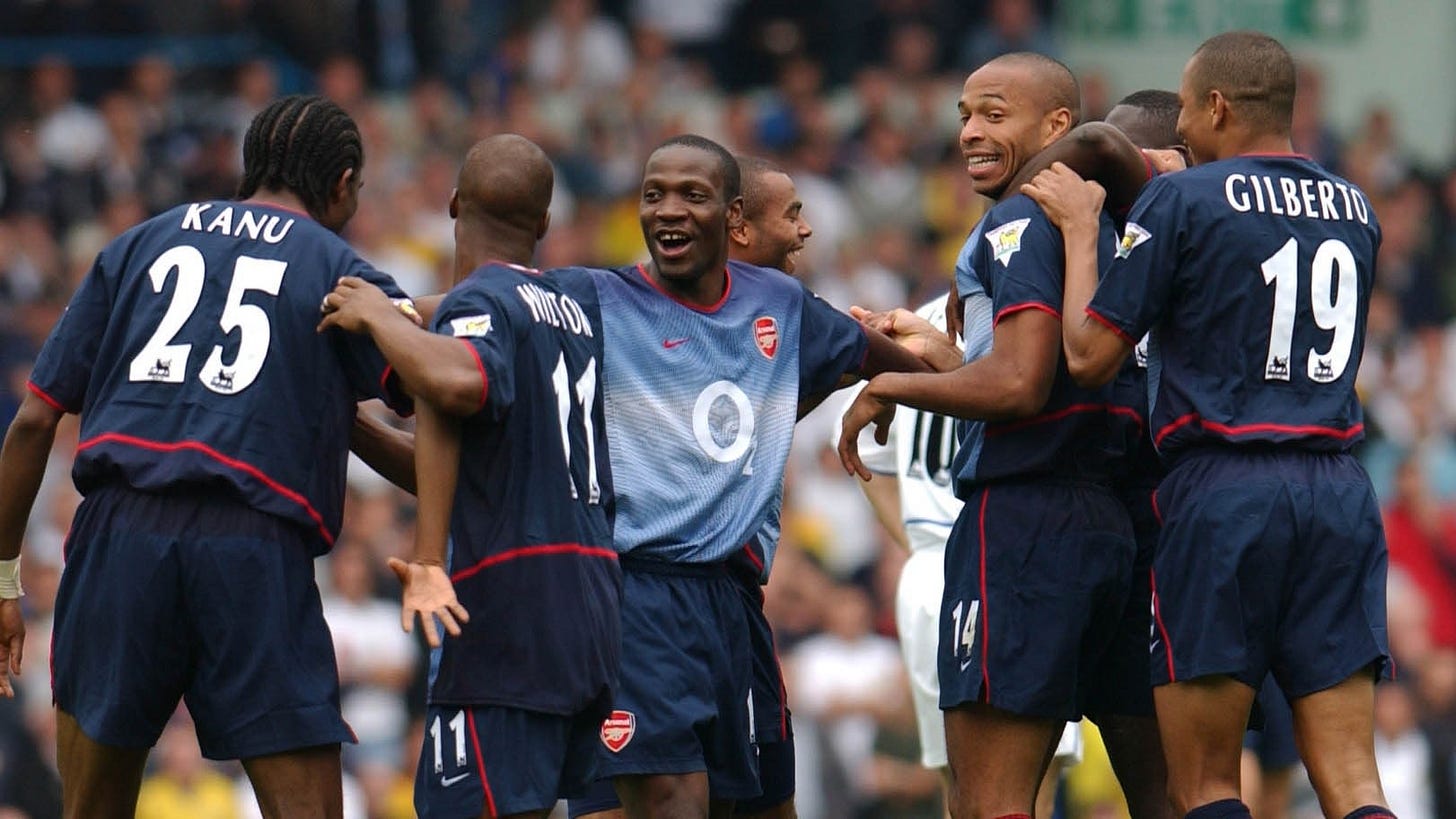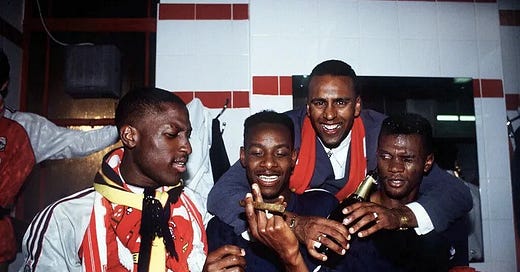Black Arsenal - Exploring Arsenal's Unique Bond with Black British Identity and Culture...
Arsenal has a unique connection with Black British identity and culture that no other team can replicate. In this newsletter, we delve into why this is the case...
Happy new week!
Continuing on our ‘Reclaiming Narrative’ series this Black History Month, we will be deep diving into Arsenal’s unique connection with the black British identity. This newsletter is inspired by the amazing work and research done by Dr Clive Nwanko and Matthew Harle, the writers of Black Arsenal.
This may be blasphemous to say but if I wasn’t born a United supporter and had a choice what team to support, I would be an Arsenal fan, not because of how well they’re playing this season but because of the profound connection they have on my culture and identity. Arsenal has a deep cultural resonance that no other club possesses, which is why many Black Londoners gravitate towards Arsenal. The club has always had a unique relationship with Black culture, stemming from the players, their community engagements, marketing campaigns and more.
Arsenal has historically been home to iconic Black players who have become significant cultural figures. Legends like Ian Wright, Nwankwo Kanu, Thierry Henry and Patrick Vieira, have cemented a strong connection with Black British fans and inspired generations of black fans and players. Looking back you can see how players like Paul Davis paved the way for Ian Wright which paved the way for Thierry Henry, which then paved the way for Saka, The Starboy, the next torchbearer.
Arsenal’s Black connection continued to grow under the management of Arsene Wenger, who was known for signing French and African players. Arsenal made history in 2002, when they became the first English club to field nine Black players in a game. This kind of representation for young black boys and girls built an affinity to the club. This bond is deeply rooted in seeing players who look like them and from similar backgrounds succeed on the field, which in turn fosters a sense of belonging and pride from a young age. Arsenal leveraged this connection to build a substantial Black British fanbase.

Arsenal is deeply rooted in its diverse North London community, specifically Highbury and Islington. The club’s community work dates back to the 80s. Many fans fondly remember The JVC Centre at Highbury, which, when not being used by Arsenal teams, welcomed the community to enjoy its three-quarter size astro pitch, weights room, changing rooms, and function rooms. This indoor training centre, run by the community team, was the hub for the most imaginative community programme in British football until Arsenal left Highbury in 2006.
Arsenal still pours into its community and fans today, in July Arsenal recognised its huge West African fanbase when they launched their new alternative away kit for the forthcoming 2024-25 season. Designed by Foday Dumbuya, founder of the London menswear brand Labrum. With its pan African colours, the jersey pays homage to the club’s African fanbase and players like Nwankwo Kanu and Kolo Touré, whose legacies are woven into the club’s history. The kit was launched with a captivating short video which showed fans from Sierra Leone, Arsenal legends like Kanu, black British influential figures such as wretch 32 and current players Gabriel Jesus, Jurrien Timber and Bukayo Saka.
It's fair to say Arsenal has claimed the title of the culture club, and its clear they’re doubling down on their efforts and leading the way for other clubs to follow. The club has significantly shaped and reflected Black identity across various cultural pillars, such as media, music, and fashion. This is evident in the music used for kit promotions, its kit designs such as the Jamaica-inspired jersey from the 22/23 season, the West African inspired jersey from this season, to even its Amazon Prime documentary "All or Nothing," narrated by longtime Arsenal fan Daniel Kaluuya.
Arsenal's deep bond to the Black community is very unique and can’t be replicated by any other club. Arsenal’s significant Black British fanbase can be attributed to the fans themselves, past and present players and the club understanding their relationship with this demographic and nurturing them in very authentic ways, which created a true sense of identity, belonging and pride.



